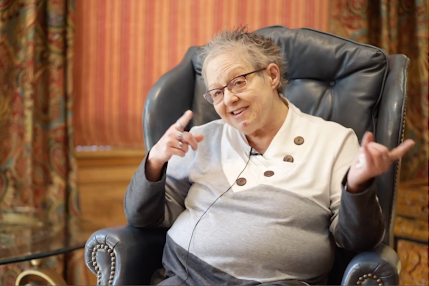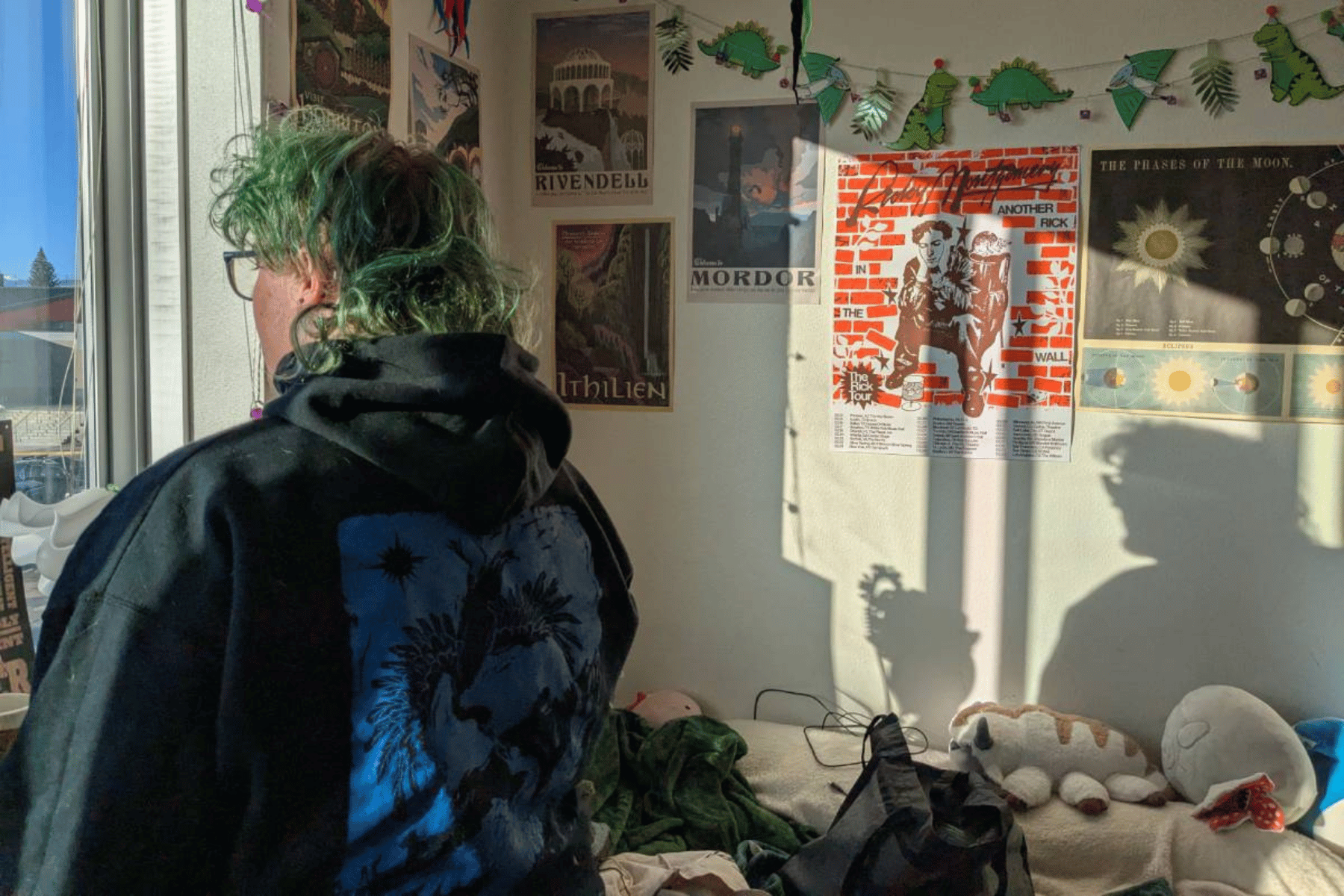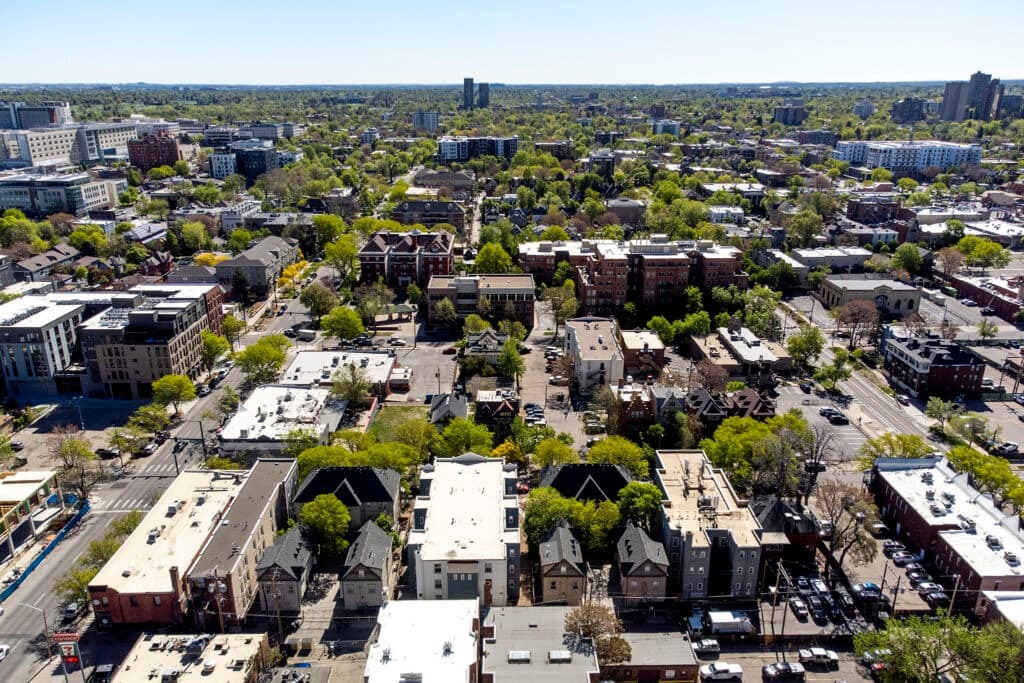
After Sherie Simonsen’s mother passed away, her grief could be overwhelming. Then, she got help. The Denver resident qualified for free mental health sessions offered to older people by the Colorado Gerontological Society. The counselor made a big difference.
“I would call her off-hours sometimes, and text her, and just be crying and sobbing,” Simonsen, 65, said. “And she would tell me, ‘You're going to be okay. It's the emotions. They only go so high, and then they go low. So you got to be able to handle the emotional peak that you're at. Because it will eventually come down to where you can handle it.’"
“That's what helped me through this,” Simonsen said. “It's still helping me.”
It’s hard to generalize about the mental health of older adults. Studies show people over 65 report higher levels of life satisfaction, and lower rates of mental illness. On the other hand, they often suffer from loneliness, and, like Simonsen, loss and grief. Older men have the highest reported rates of suicide.
Against that backdrop, the nonprofit CGS launched two programs to help older Coloradans navigate mental health challenges. The first, called Telephone Buddies, enlists volunteers to reach out once or twice a week to older people who may feel isolated.
The second is the mental health counseling program that helped Sherie Simonsen. It’s funded by a Denver city tax that voters approved in 2018 for mental health services and is therefore offered only to Denver county residents for now. It’s been so popular that CGS is no longer accepting new applicants this year.
The Colorado Gerontological Society is sponsoring a “Salute to Seniors Expo” on August 24 at the Greek Events Center in Denver, featuring an array of organizations that support older adults here in Colorado.
CGS executive director Eileen Doherty spoke with Colorado Matters host Chandra Thomas Whitfield.
This interview has been edited for length and clarity
Chandra Thomas Whitfield: Do you find that the mental health of older adults is often overlooked?
Eileen Doherty: Yes, I do believe that mental health for adults is overlooked. We tend to focus a lot more on people's physical health and we don't really pay much attention to their mental health. And one of the things that I'm always concerned about is, while older adults have more resiliency, they also experience many of life's challenges and don't always have the coping skills to manage those situations.
Thomas Whitfield: What are you seeing here in Colorado in terms of how older adults are faring in regards to mental health?
Doherty: Older adults get very, very few mental health services. As we have expanded our mental health capacity with legislative funding, much of that has gone both to corrections as well as to children's mental health, and very little has gone to older adults.
| Whether you're aging yourself or caring for someone who is, what questions do you have? Email us at [email protected] or leave a voicemail at 303-871-9191 X 4480. |
Thomas Whitfield: Your first outreach program launched in 2019, a program called Telephone Buddies. And it isn't counseling, but it does in a pretty creative way aim to address some of these issues. It sounds a lot like another program we featured on the show called Social Call. Tell us about it. How does Telephone Buddies work?
Doherty: So a “telephone buddy,” those are individuals who are really looking for somebody to check in on them, somebody that they can count on that they will get a phone call or have at least some, as one lady says, ‘human contact.’ They're oftentimes people who live alone but not necessarily. And then they are contacted by phone, by a community volunteer. The purpose of the call is to do two things. One is to do a check-in: ‘How are things going? Do you have enough groceries? Do you have any medications?’ That kind of general check-in. And then the second piece of it is really focused on what we have labeled broadly, ‘wellbeing.’ And that is just an opportunity to chat with someone about, ‘What did you do yesterday? What's interesting in your life? What are you looking forward to?’ Things that you would talk about with a friend. So it becomes more of a peer support program.
Thomas Whitfield: So a phone call or two a week. What kind of impact are you seeing with that?
Doherty: What we're seeing is that the majority of the calls are focused on wellbeing. And the second thing is that older adults, at least anecdotally, really report about how this person, their volunteer, their telephone buddy, has made an impact because they look forward to the phone calls, they know that they can share information. They know that if they need help or support that somebody will get back to them. So it's really that kind of stable person in their life. We ask the volunteers to make at least a one-year commitment. And the purpose for that is so there’s an opportunity for trust, as well as the social connection, to develop. Many of our telephone buddies or our older volunteers have been with the program since pretty much day one, and they've developed some pretty amazing relationships with their telephone buddies over time.

Thomas Whitfield: Now, last year you expanded services, so now along with Telephone Buddies, the Society is also offering free mental health counseling. What are some of the challenges you are finding that many of the older adults in the program are saying they're dealing with?
Doherty: So first I want to make clear that the mental health counseling at this point in time is only available to residents who are living in the city and county of Denver. And we prioritize people who are age 60 and over. Some of the problems that we are seeing are issues that Medicare and Medicaid won't cover because they're not seen as major mental illness. But rather they're things like, people are upset because they've lost their driver's license. Or they're upset because their pet for many years passed away, and that was their major companion. Or they're upset because they're having to move into an assisted living or a senior living community. So they have to give up their home, they have to give up many of their life treasures. And so there's a lot of that just, “I've lost my grounding and how do I cope with this new challenge in my life?” So the goal oftentimes is to give them then some of those coping skills or some strategies that they can use to manage, if you will, their feelings, their frustration, their loss around their new life situation and really begin to adapt to this new norm. Because most of the time when people are calling, it's around a loss.
Thomas Whitfield: What are some other benefits that those who've been a part of the program say they've experienced?
Doherty: What people have expressed to me is that I have somebody to laugh with. I have somebody to cry with. I have somebody that I can share my thoughts with. And what I hear most frequently is, they listen to me.
| This story is a part of Aging Matters, a series from Colorado Matters about the Centennial State's aging population. Read more stories here. |
Thomas Whitfield: Well, you mentioned this earlier and we often hear that older generations are more resilient and perhaps as a result, some may be less likely to seek support or reach out for counseling. Are you seeing that in your program?
Doherty: Yes, I think we have seen some of that over the years. I think there's still an attitude among many older adults that I don't need counseling, that I'm not nuts. So one of the things that I have often tried to help people is I say, “Well, maybe it would be okay if you talk to somebody because you're worried. We all worry, and sometimes we worry too much.” That oftentimes will be an icebreaker for people to say, “Okay, you're right” And then they're a little more willing to share their grief or their loss or their concern about what's really bothering them if they feel like it's more normal. I think my generation, which is the baby boomers, are more accepting of mental health support, but the greatest generation, which was my parents, were much less willing to accept this type of support. And I think that generations to follow will be much more accepting of mental health services because we've made it okay for people to accept those and to ask for them. And I'm really pleased that we've gone down that direction as a society.
Thomas Whitfield: As we wrap up, what do you want people to know about this issue of mental health and older adults?
Doherty: I want people to know that it is okay if you are not feeling good about something. And I want you to know that it is okay to ask for help. And I want you to know that you can always reach out. And even if the first time or two you ask for help, it doesn't quite meet your need, don't give up. Stay with it because you didn't get to be an older adult without having a lot of tenacity and grit, and you need to use those skills to get you some mental health support as well.
Looking for mental health support? The state of Colorado has a website to help people of all ages: OwnPath.co Or, call the state's Mental Health Line for free, immediate, human support 24/7. Call, text or chat 988.









